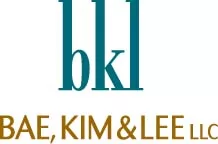Prospect of Litigating in the U.S.
Many Korean companies will litigate in the U.S.
- Korea has a global economy: exports, joint ventures, licensing agreements, international subsidiaries, etc.
- Number of published US lawsuits involving top 6 Korean exporters from 2000 to 2005
- 694 cases, 580 as defendants
U.S. Litigation
- Expensive
- Time-consuming
- Unfamiliar
- Broad Discovery
- Document Production
- Deposition
How a U.S. Lawsuit might arise
- By Agreement in a contract
- By operation of law (U.S. ex.)
- Where parties are present
- Place contract was executed or performed
- Place where injury occurred (tort)
How a U.S. Lawsuit begins
- Service of process
- Failure to properly serve the summons and complaint according to the court’s rules is a defense to the lawsuit
- International service of process
- Hague Service Convention
- Both U.S. and Korea are signatories
Korea vs. U.S.: Differences in Litigation
U.S.:
- Adversarial – oral & written advocacy, lawyer-driven
- Jury trial
- Summary judgment
- Specific rules on admissible evidence
- Broad discovery
Korea:
- Inquisitorial – primarily driven/controlled by judges
- No specific rules on evidence admissibility
- Limited discovery
Korea vs. U.S.: Differences in Litigation
U.S.: Divided into distinct stages
- 1st stage: Pre-trial.
- Discovery and motions
- 2nd stage: Trial
- one single trial (may be multiple days)
Korea: Sequential, ongoing process of submissions and hearings in pre-trial / trial
U.S. Document Discovery Scope
Parties may obtain discovery regarding any matter, not privileged, that is relevant to the claim or defense of any party, including the existence, description, nature, custody, condition and location of any books, documents, other tangible things and the identity and location of persons having knowledge of any discoverable matter
General Discovery Tips
- Anticipate litigation
- Start preparing early
- Document handling is important
Document Handling
- Establish and follow a document retention system
- Once a dispute is anticipated, do not alter or destroy any documents
Failure to Comply with Discovery
- Impose costs if demanding party moves for production and prevails (including reasonable legal fees)
- Adverse finding of fact, as if demanding party established through evidence
- Prohibit non-producing party from supporting or opposing designated claim or defense
- Strike out pleadings or parts thereof
- Stay further proceedings until order is obeyed / dismiss action / render default judgment
- Contempt of court (independently or with other sanctions)
Document Handling : Key Strategies
- Assume no confidentiality
- Maintain document retention policy
- Use protective privileges
- Attorney-Client Privilege
- Work Product Doctrine
Attorney-Client Privilege
Applies only if (1) the asserted holder of the privilege is or sought to become a client, (2) the person to whom the communication was made (a) is a member of the bar of a court, or a subordinate thereof and (b) in connection with this communication is acting as a lawyer, (3) the communication relates to a fact of which the attorney was informed (a) by the client (b) without the presence of strangers (c) for the purposes of securing primarily either (i) an opinion on law or (ii) legal services or (iii) assistance in some legal proceeding, and not (d) for the purpose of committing a crime or tort, and (4) the privilege has been (a) claimed and (b) not waived by the client.
Summary of Requirements:
- Communication with a licensed attorney
- Legal advice (not business advice)
- Confidential
Attorney-Client Privilege: Key Strategies
- Include an attorney as recipient
- Stamp: "Privileged & Confidential Attorney Communication"
- Expressly ask for (or indicate) legal advice
- Address in-house counsel as "Counsel"
- Limit access
- Maintain confidentiality
Work Product Doctrine
Covers documents and tangible things otherwise discoverable and prepared in anticipation of litigation or for trial by or for another party or by or for that other party's representative (including the other party's attorney or other agent)
Work Product Doctrine
Summary of Requirements:
- Documents, etc.
- Created in anticipation of litigation
- By or for a party or party representative (e.g., attorney)
- Confidential
Work Product Doctrine: Key Strategies
- Obtain legal counsel early with an engagement agreement that explicitly covers the dispute
- Stamp: "Confidential: Attorney Work Product"
- Indicate the matter it concerns
- Limit access
- Maintain confidentiality
Trade Secrets and Sensitive Documents
- Cannot always avoid disclosure, but may restrict those allowed to see the documents
Rule 30(b)(6) Deposition
- Federal courts, and most U.S. states, allow the opposing party to depose one company representative to testify regarding company actions
- This is binding testimony
- It is a good idea to select one person and prepare them to testify
Hearing
- Jury Trial
- Oral Advocasy
- Fight in Evidence
- Motions and Summary Judgment
Enforcement in Korea
- Note that neither U.S. nor Korea is a signatory to a multilateral treaty for enforcement of foreign judgment
- Korean courts will enforce a U.S. judgment if:
- Final and conclusive judgment (no appeals)
- Proper exercise of jurisdiction over party opposing judgment – Fair opportunity to participate in a fair trial similar to civil procedure act
- Proper service of process
- Conformity with Korean public policy
- Reciprocity with rendering jurisdiction
Benefits of Korean local counsel
- Local - same time zone/language/culture
- Efficient work-sharing in discovery/motion stage
- Korean counsel can:
- Advise on selection of US counsel
- Explain differences in legal systems
- Prepare accurate translations of legal documents
- Help manage costs—NOT more expensive
- Assist in later enforcement proceedings in Korea
Conclusion
- Advisable to begin preparing early when a dispute is foreseeable that might be litigated in the U.S.
- Get assistance of good legal counsel early
- Remember documents are critical
- Use a document retention plan and follow strategic tips on using protective privileges
The content of this article is intended to provide a general guide to the subject matter. Specialist advice should be sought about your specific circumstances.

